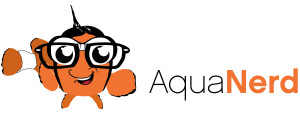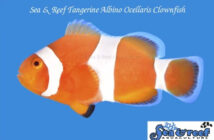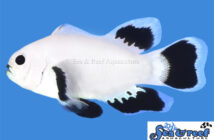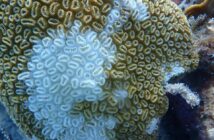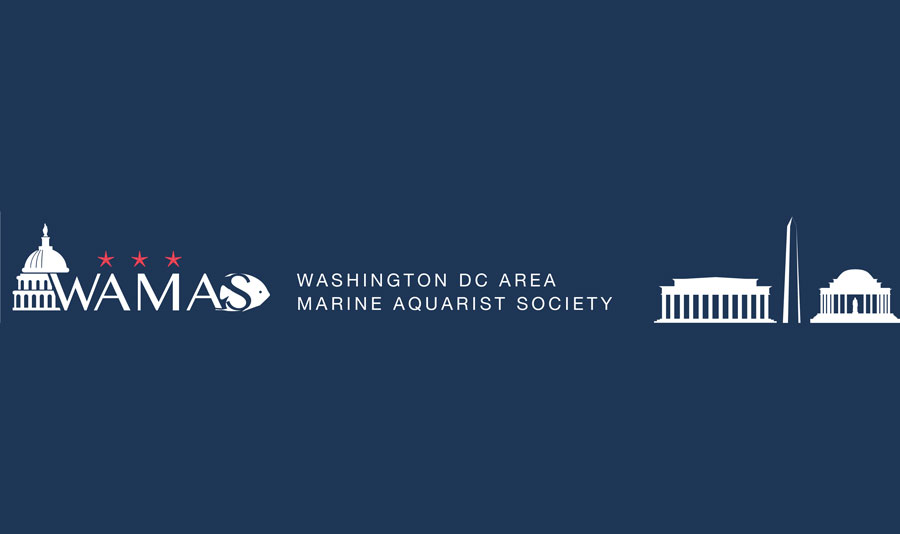
We would like to give a shout out to WMAS (Washington DC Area Marine Aquarist Society) for their donation of $20,000 to the Great Barrier Reef Legacy Living Coral Biobank Project. Please keep reading below to learn more about WMAS and the Biobank Project. Nicely done WMAS! Also, there is a contribution link below if you would like to consider making a donation to the Biobank.
WAMAS Donates $20K to the Living Coral Biobank Project
(Reston, VA, USA & Port Douglas, QLD, AUS) The Washington DC Area Marine Aquarist Society (WAMAS) has donated $20,000 USD to the Great Barrier Reef Legacy Living Coral Biobank Project.
Great Barrier Reef Legacy, along with key partners have established the Living Coral Biobank Project in Australia. Funded by private donations, the team has managed to scale the project quickly to try and secure the full biodiversity of stony corals on the Great Barrier Reef in light of four mass coral bleaching events in just six years. After being identified underwater by Dr. Charlie Veron, the ‘Godfather’ of corals, colonies are collected and are being kept alive in a dedicated holding facility with an 8,000 fragment capacity for their ultimate conservation and to make them available for reef research and restoration efforts.
A second larger and publicly accessible facility destined for Cairns Aquarium is now underway, with help from WAMAS. The new facility will be capable of housing up to 12,000 live coral fragments. “We have been absolutely humbled by the support and generosity we are seeing from the US reef-keeping community, with everything from registering interest in looking after corals fragments within home and office tanks, to adopting individual coral fragments within our facility, and now with large donations such as that made by WAMAS,” says Dr. Dean Miller Managing Director of Great Barrier Reef Legacy and Project leader of the Living Coral Biobank Project.
Since 2015, WAMAS has donated nearly $90,000 to ocean conservation and educational causes aligned with its mission principles. Asked about the selection of Living Coral Biobank Project, WAMAS President Tom Land says, “We are alarmed by the threat climate change poses to global reef ecosystems. Solutions to safeguarding the biodiversity of these habitats is urgently required. The Great Barrier Reef Legacy team is doing excellent, innovative work that WAMAS is proud to support. We are very pleased and excited to be able to continue giving meaningful contributions to leading-edge reef-conservation programs such as the Living Coral Biobank project and for the new, larger facility in Cairns. And we hope that our donation can help lead the way to even greater support from reefing communities in North America.”
The new Cairns Aquarium facility is a state-of-the-art, yet, off-the-shelf, system that will be replicated in locations all around the world where corals need to be conserved. “We are really excited to work with the reef-building community on what is quickly becoming one of the largest conservation efforts to save coral biodiversity on the Great Barrier Reef. It is through the blood sweat and tears and years of honing skills, expertise and equipment by the reef-building community and industry that is making this possible,” says Dr. Miller. The Cairns Aquarium facility is expected to be up and running by the end of 2022.
Currently, there are over 132 species of corals in the biobank collection representing just over 33% of the Great Barrier Reef coral biodiversity, with a plan to collect up to 50% before the end of the year.
To learn more about the Living Coral Biobank or to contribute, please visit https://greatbarrierreeflegacy.org/projects/biobank.
WAMAS is a non-profit educational society committed to promoting interest in and enjoyment of all aspects of the marine aquarium hobby by educating the public on the creation and maintenance of a marine ecosystem. They provide resources to the saltwater aquarium enthusiasts in the Washington D.C., Virginia, and Maryland area by sponsoring meetings, educational seminars, lectures, online discussions, publications, websites, exhibits, and other means, as a social avenue to connect with other local hobbyists in our area. WAMAS supports education, research and conservation efforts improving marine and coral reef environments.
Contact:
Tom Land, president@wamas.org
Dr. Dean Miller, dean.miller@gbrlegacy.org
